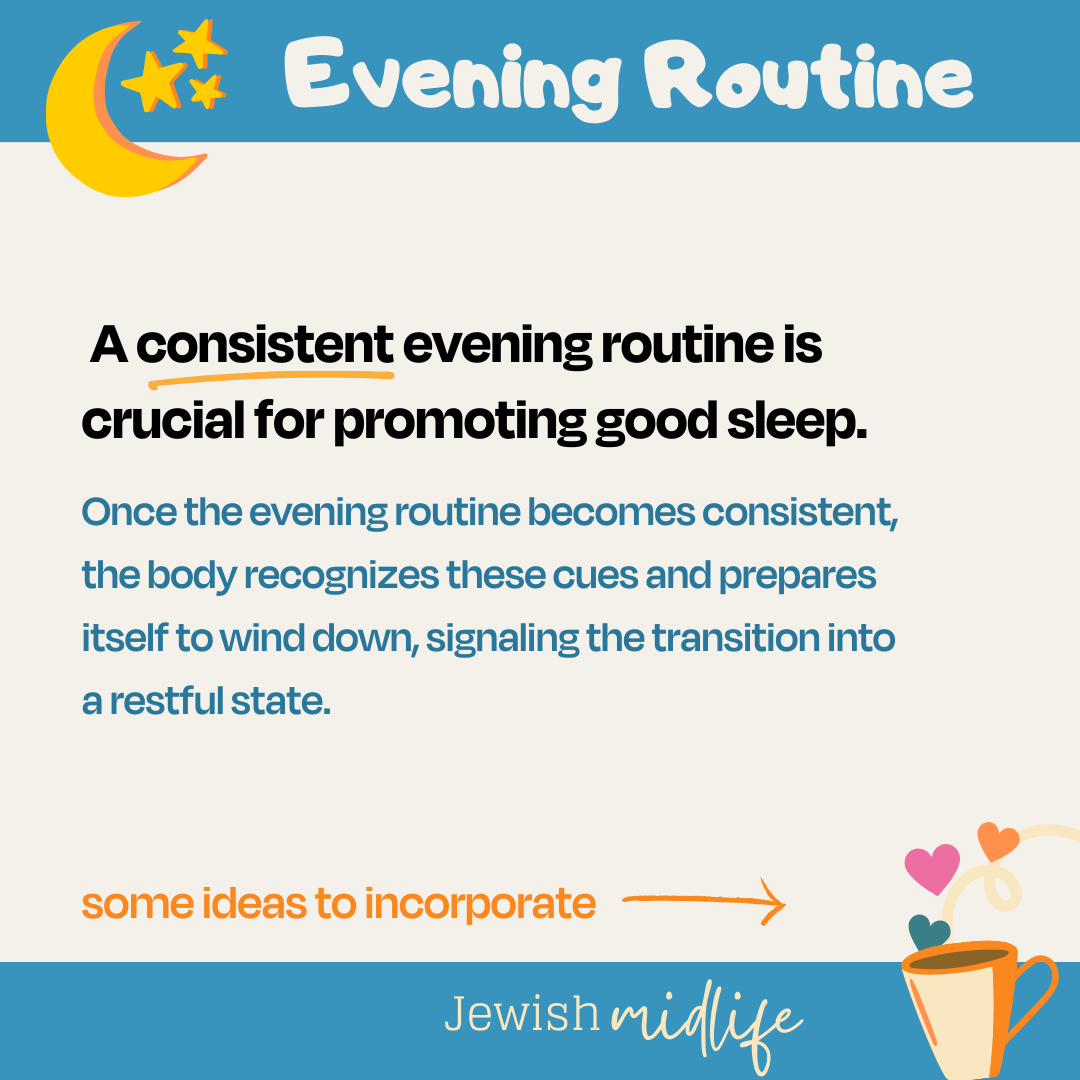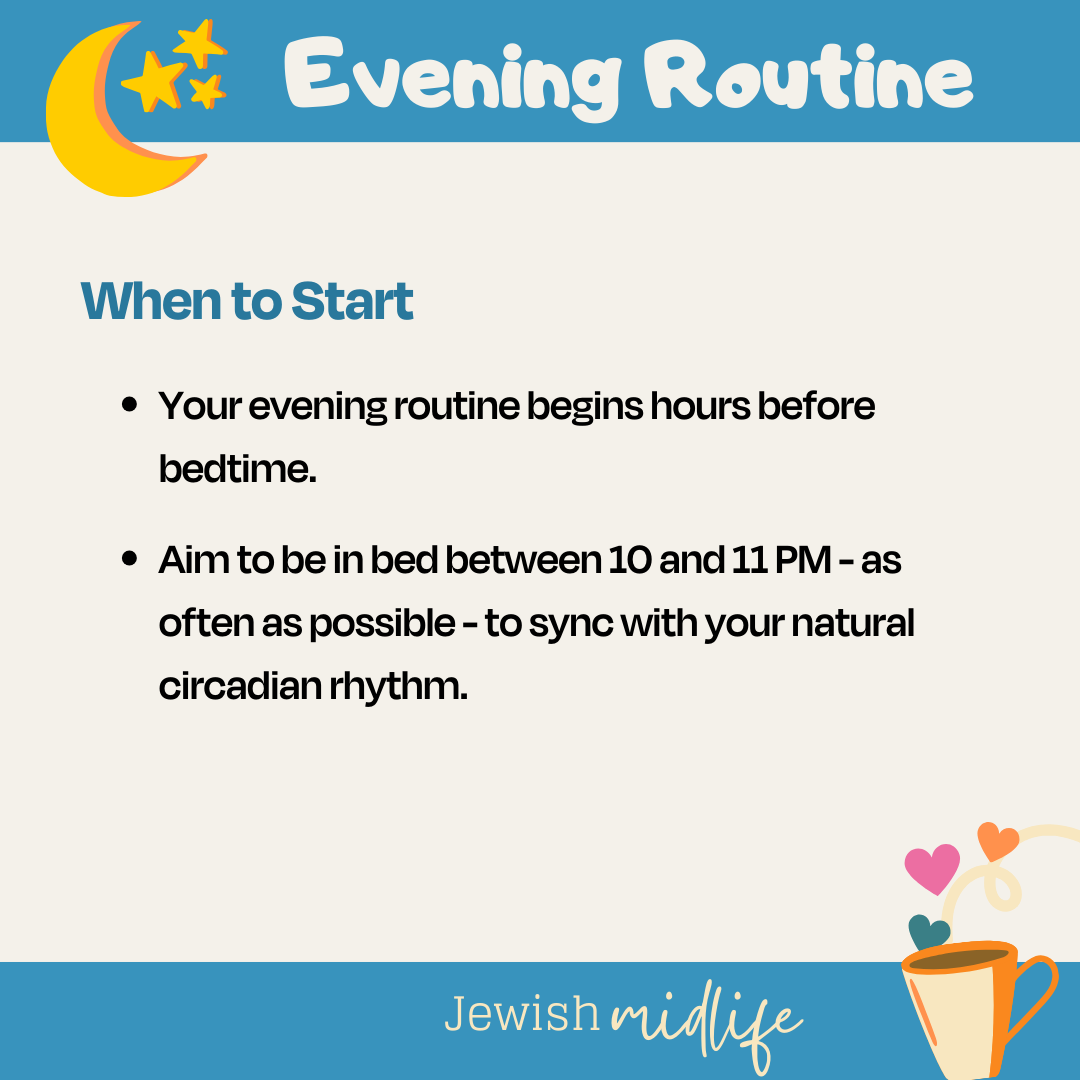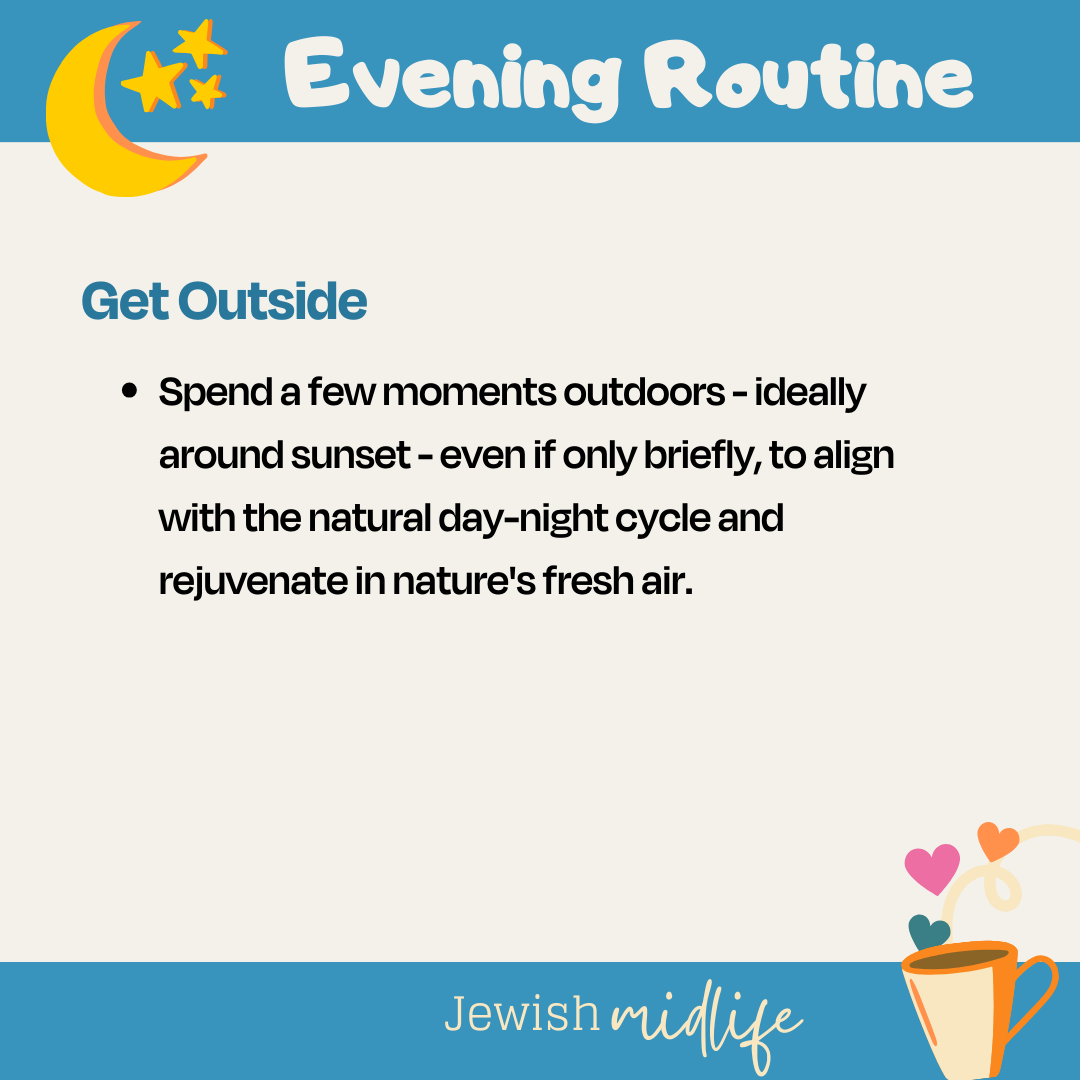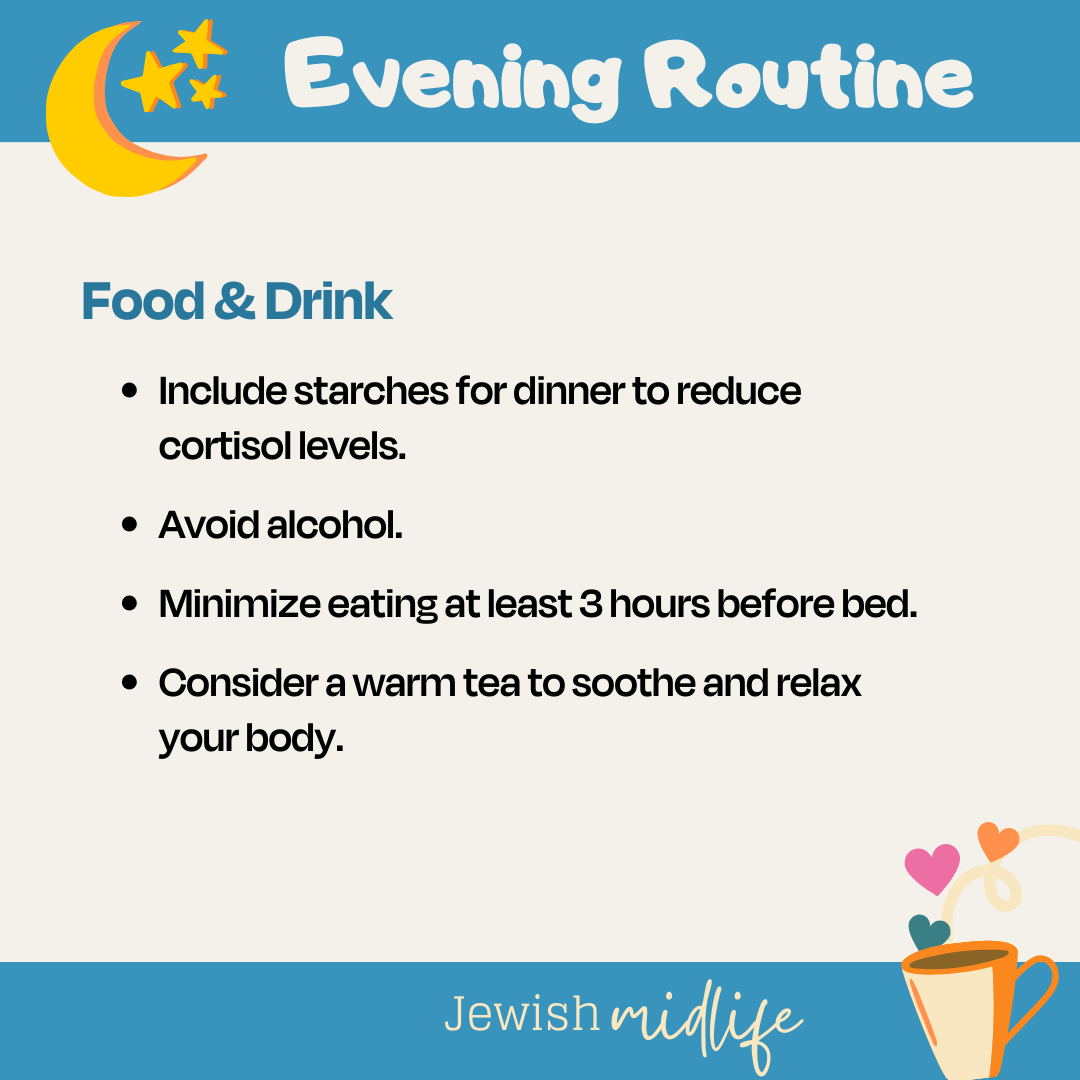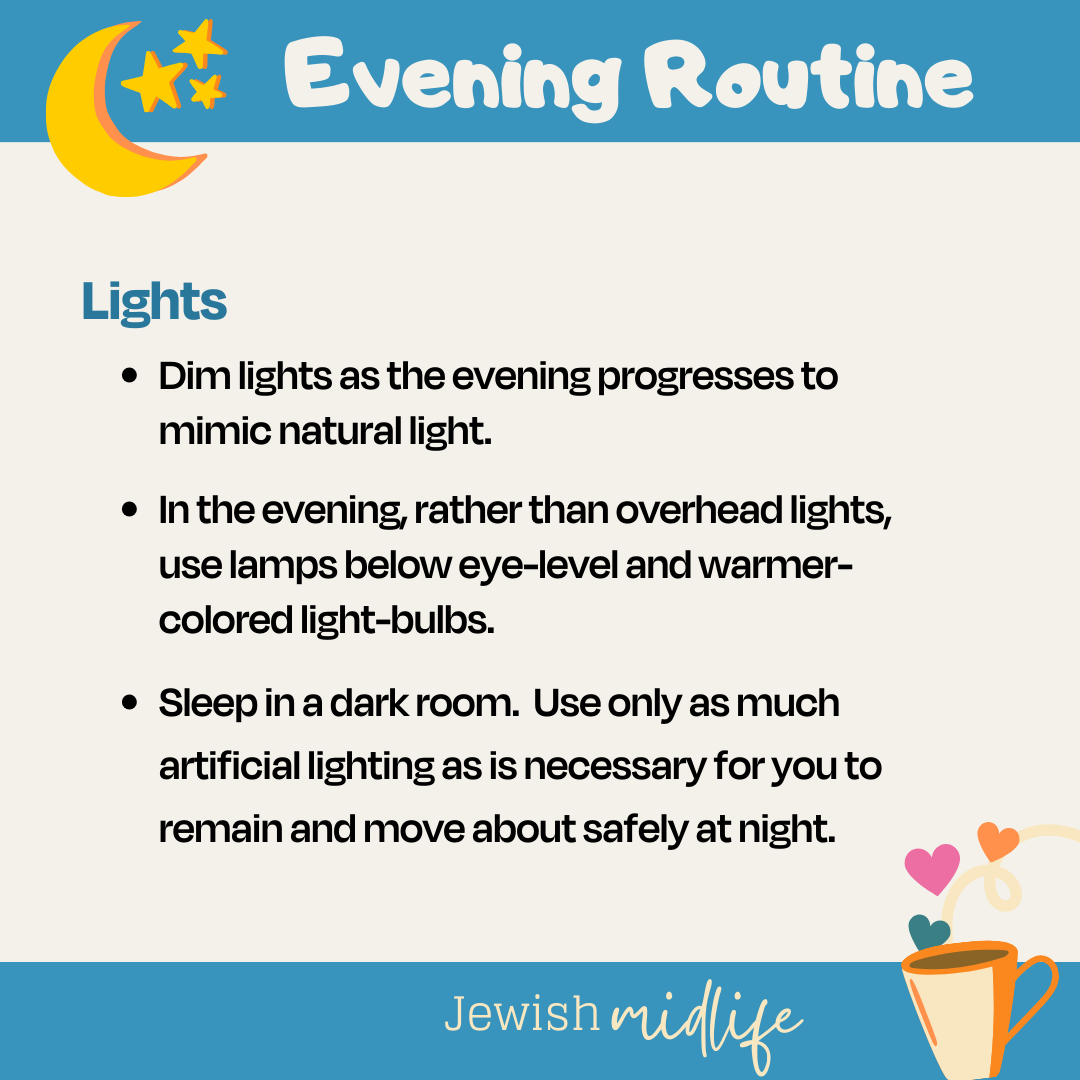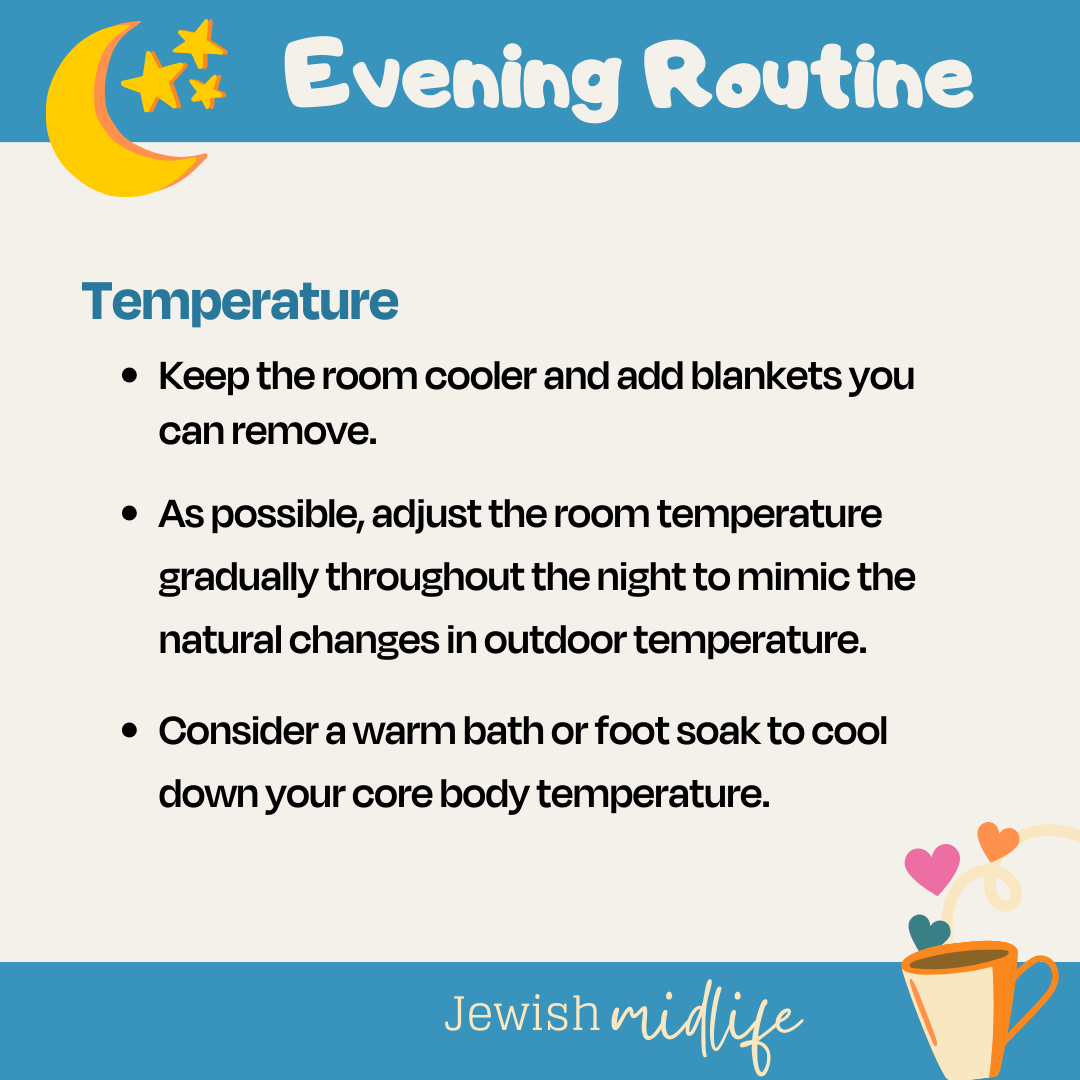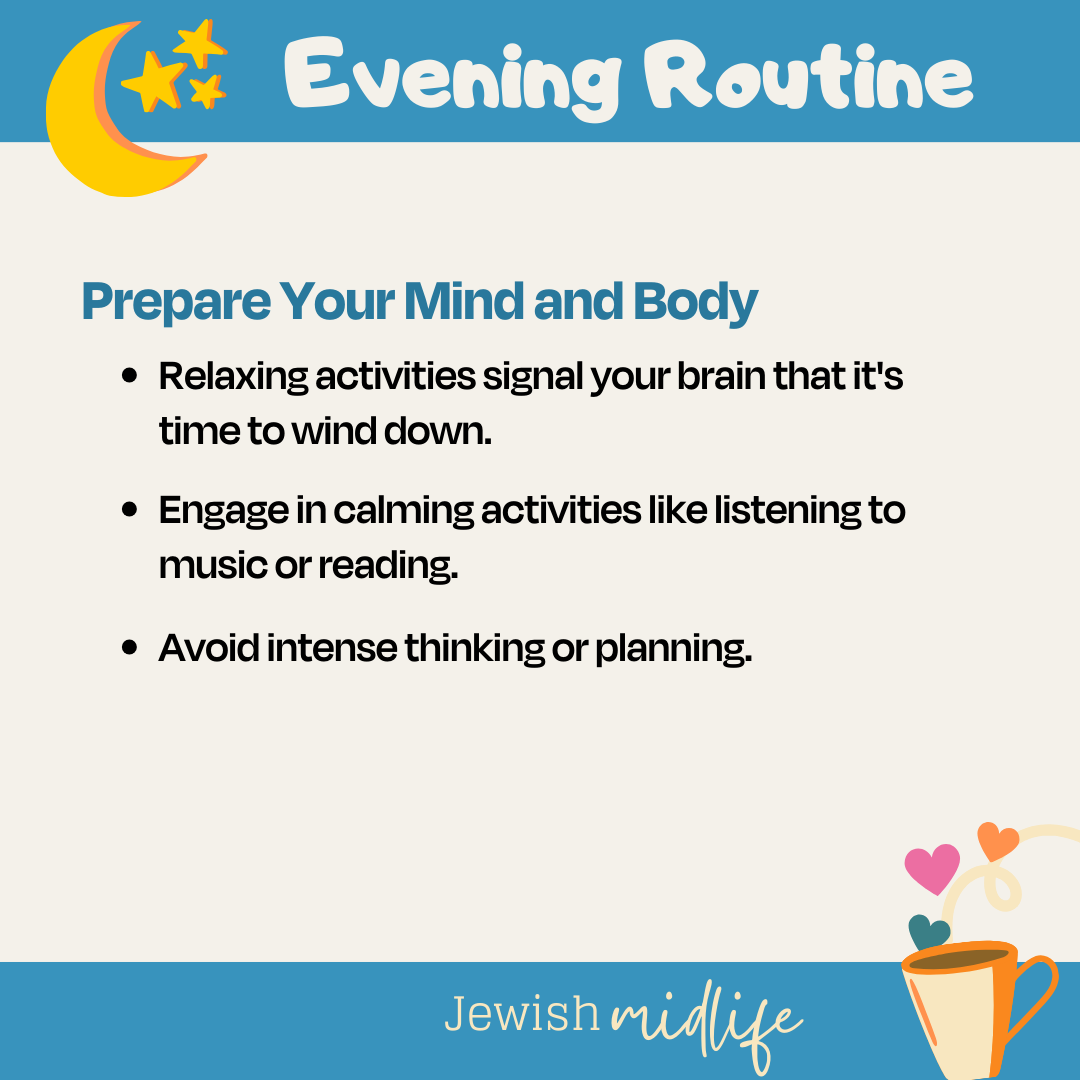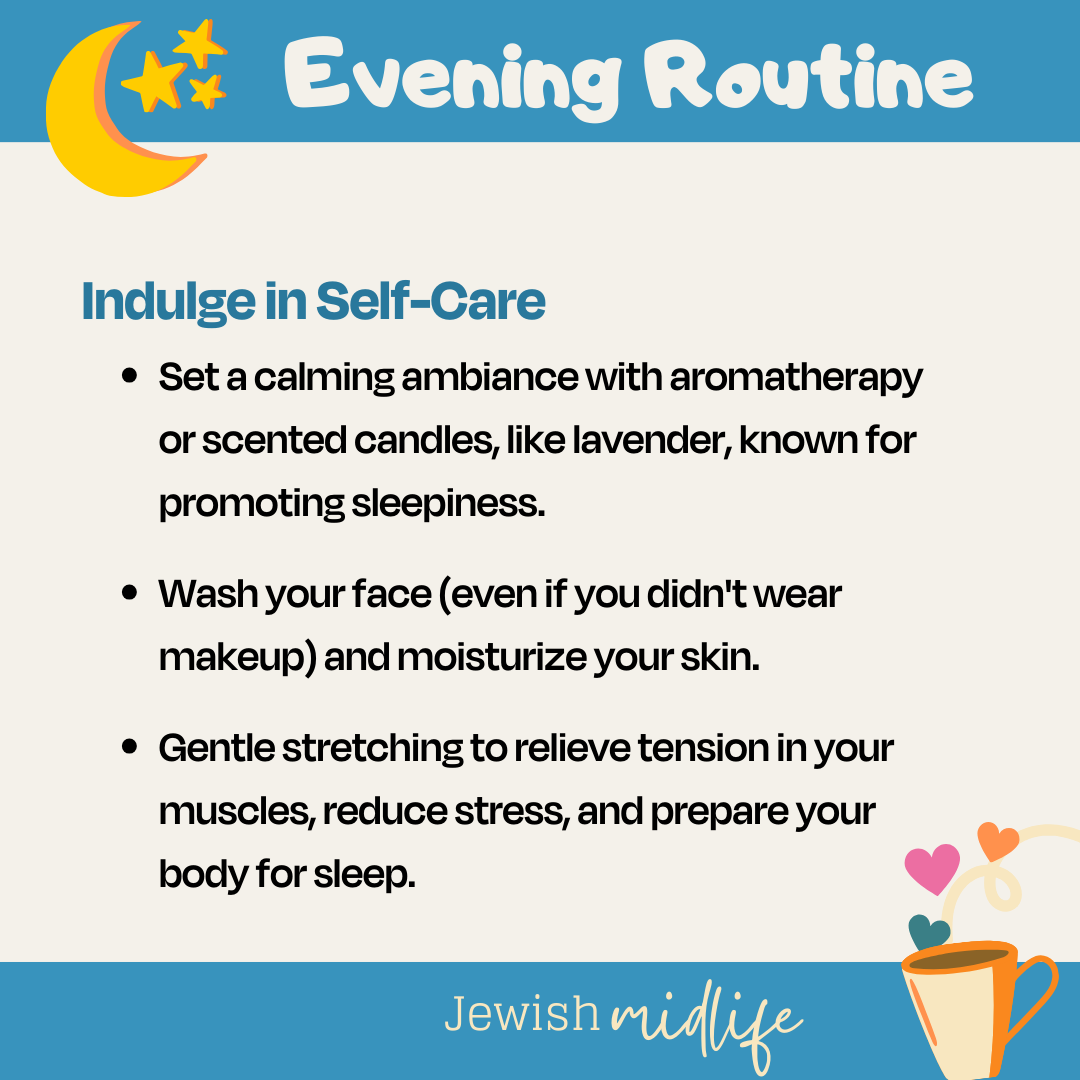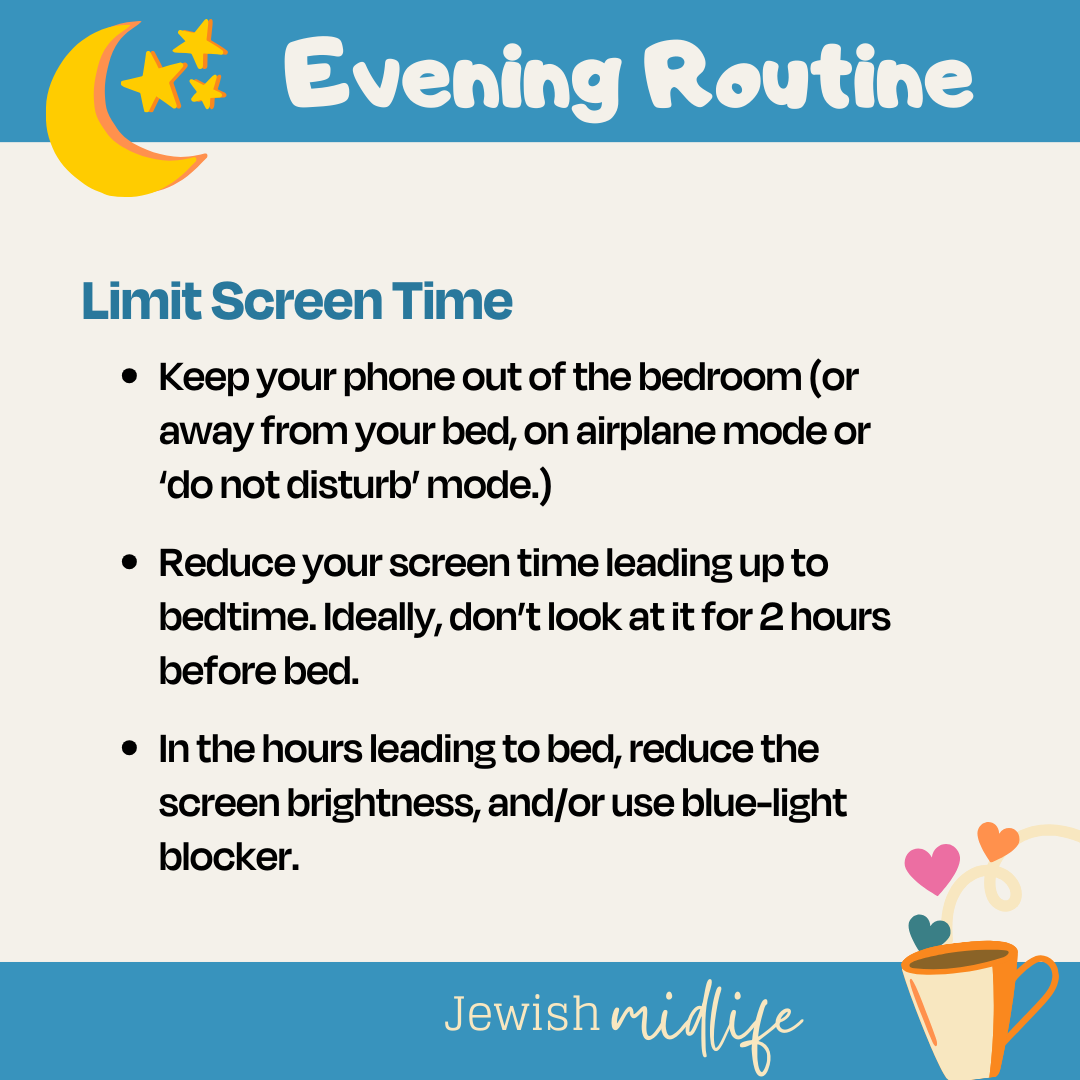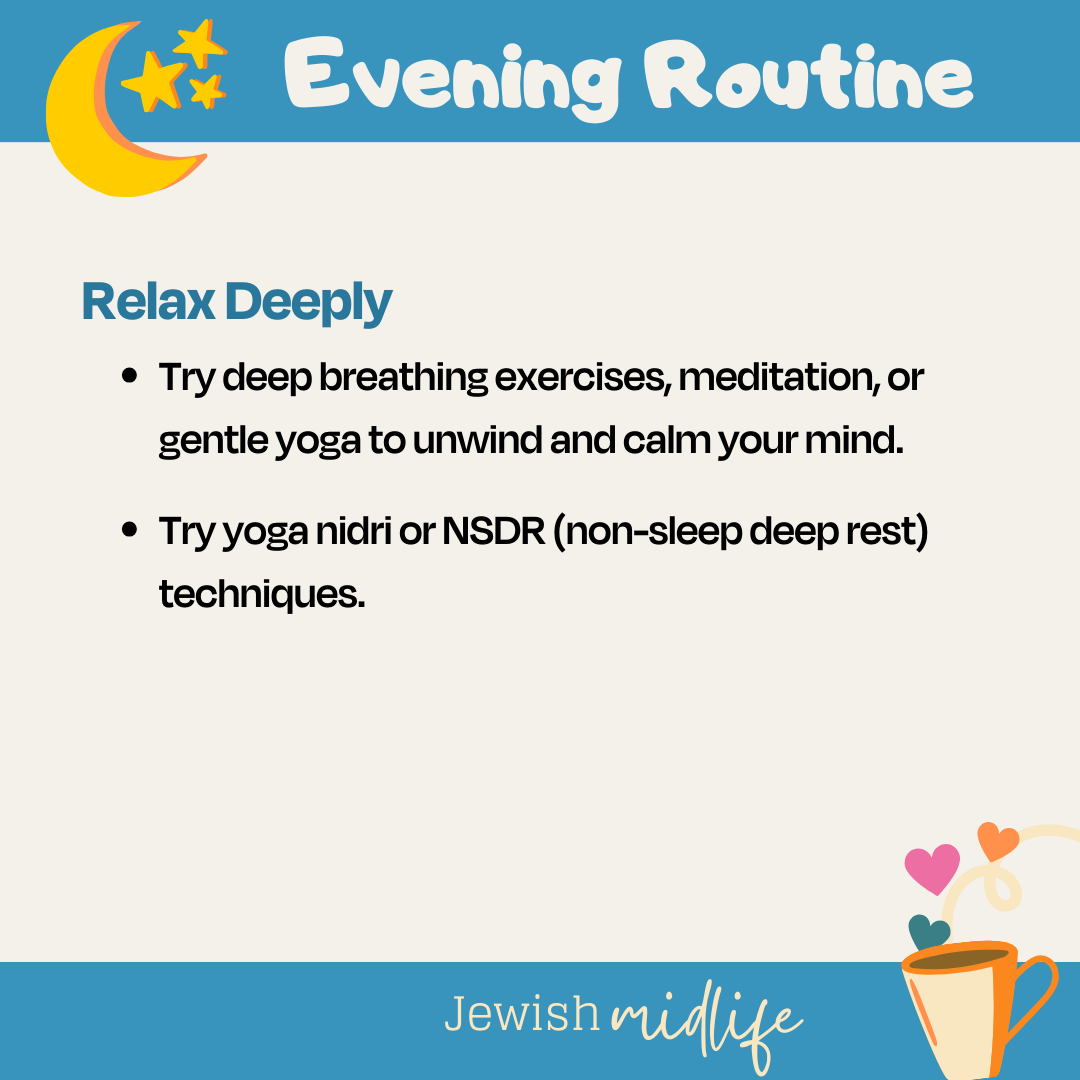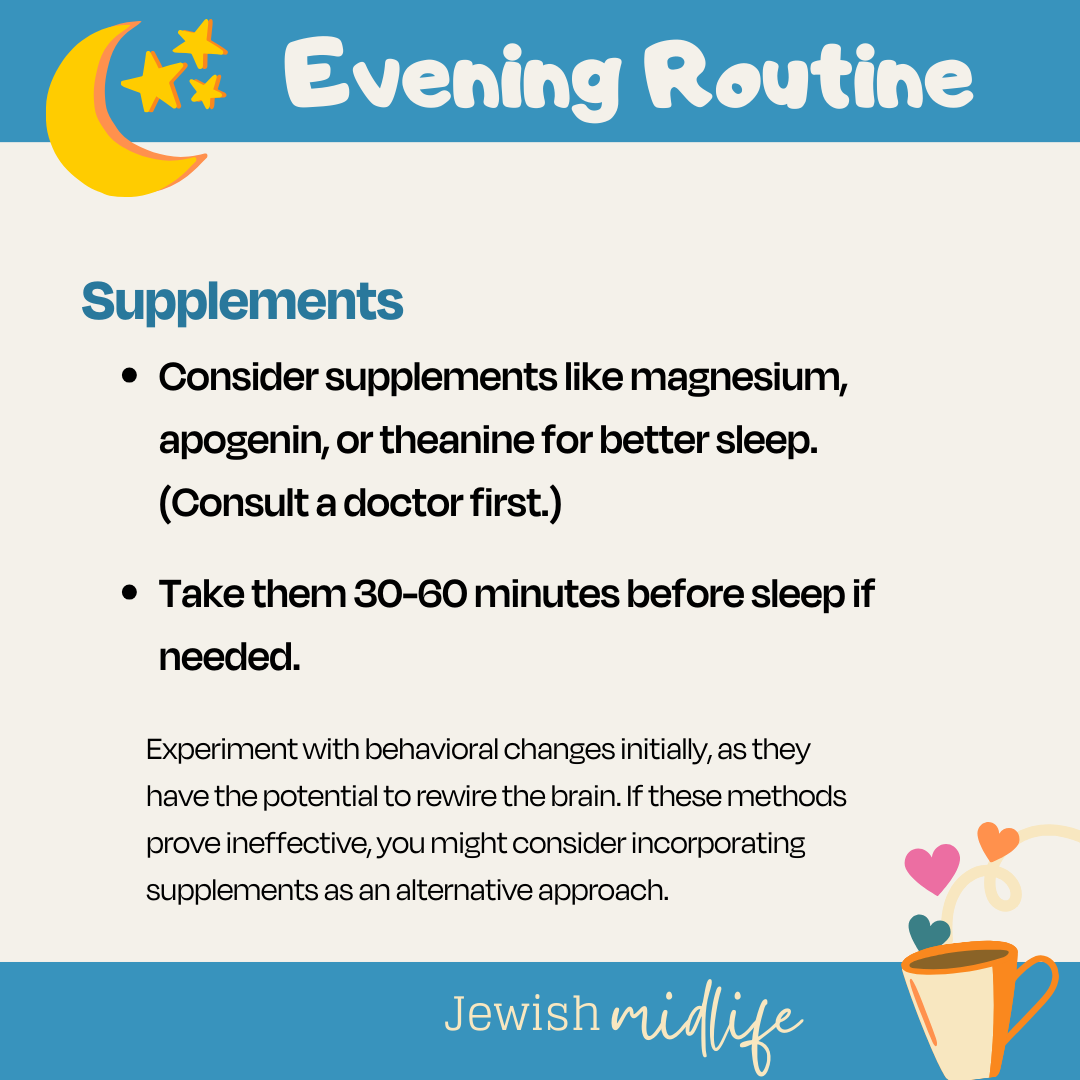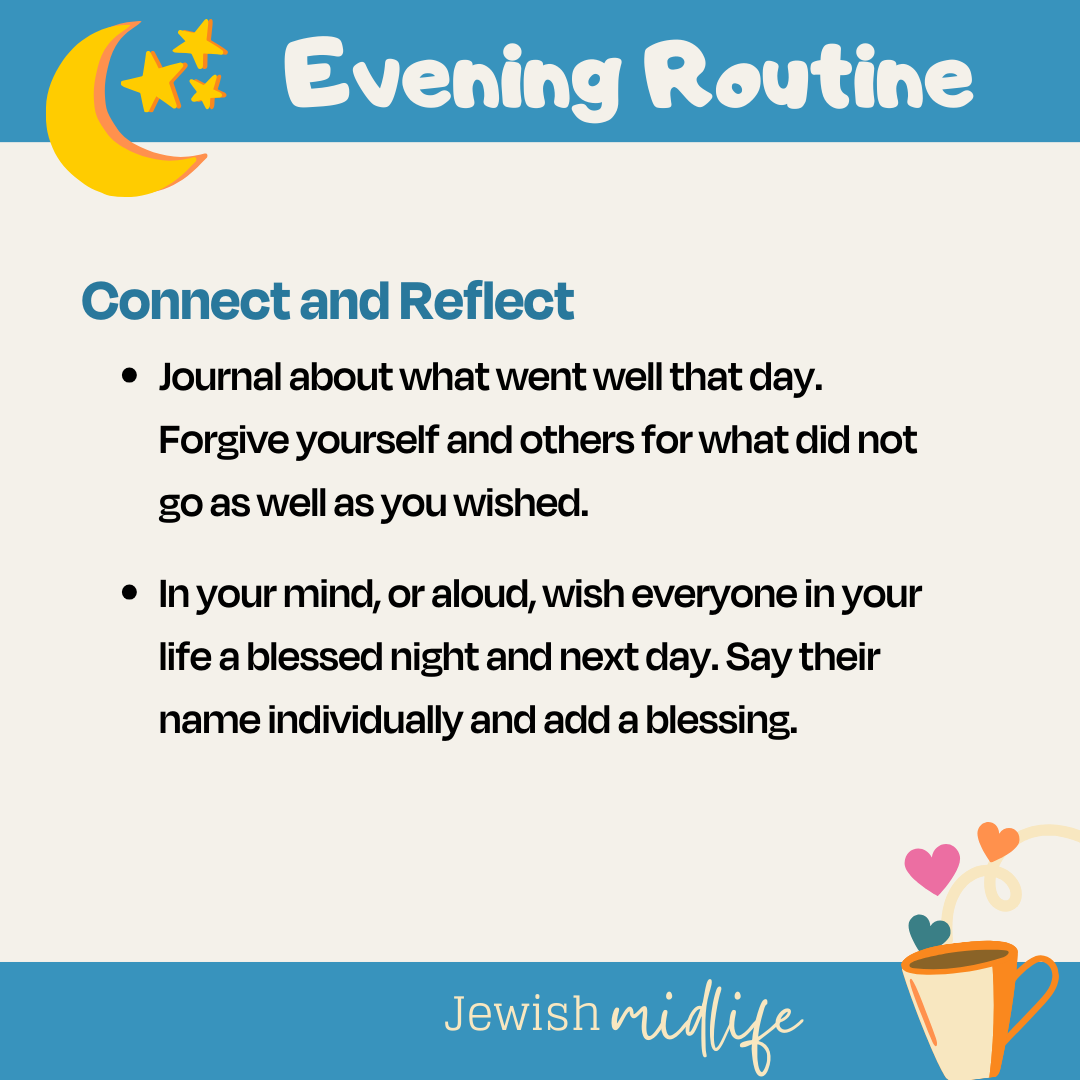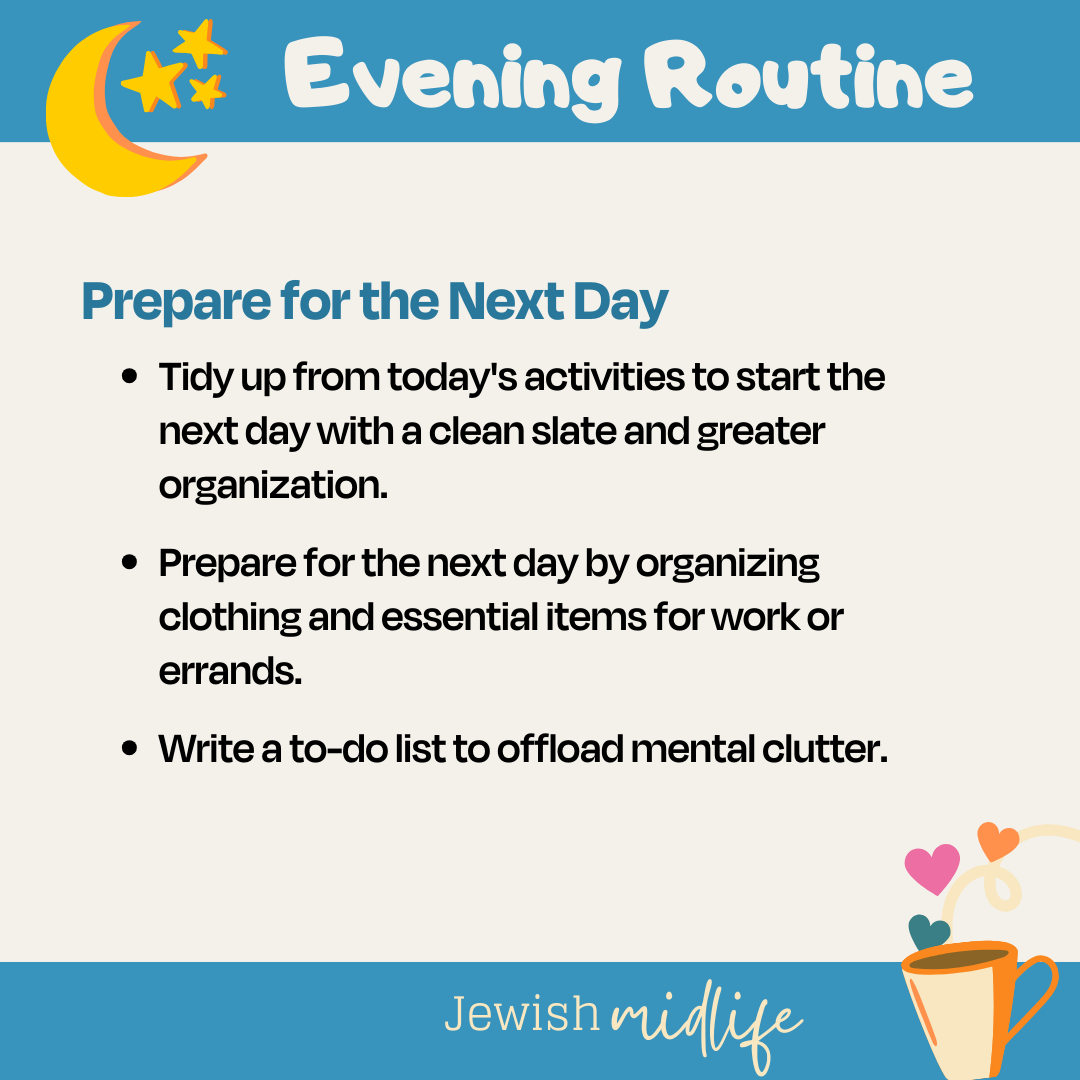A consistent evening routine is crucial for promoting good sleep. Once the evening routine becomes consistent, the body recognizes these cues and prepares itself to wind down, signaling the transition into a restful state. Some ideas to incorporate:
When to Start
Your evening routine begins hours before bedtime. Aim to be in bed between 10 and 11 PM – as often as possible – to sync with your natural circadian rhythm.
Get Outside
Spend a few moments outdoors – ideally around sunset – even if only briefly, to align with the natural day-night cycle and rejuvenate in nature’s fresh air.
Food & Drink
Include starches for dinner to reduce cortisol levels.
Avoid alcohol.
Minimize eating at least 3 hours before bed.
Consider a warm tea to soothe and relax your body.
Lights
Dim lights as the evening progresses to mimic natural light. In the evening, rather than overhead lights, use lamps below eye-level and warmer-colored light-bulbs. Sleep in a dark room. Use only as much artificial lighting as is necessary for you to remain and move about safely at night.
Temperature
Keep the room cooler and add blankets you can remove. As possible, adjust the room temperature gradually throughout the night to mimic the natural changes in outdoor temperature. Consider a warm bath or foot soak to cool down your core body temperature.
Prepare Your Mind and Body
Relaxing activities signal your brain that it’s time to wind down. Engage in calming activities like listening to music or reading. Avoid intense thinking or planning.
Indulge in Self-Care
Set a calming ambiance with aromatherapy or scented candles, like lavender, known for promoting sleepiness.
Wash your face (even if you didn’t wear makeup) and moisturize your skin.
Gentle stretching to relieve tension in your muscles, reduce stress, and prepare your body for sleep.
Limit Screen Time
Keep your phone out of the bedroom (or away from your bed, on airplane mode or ‘do not disturb’ mode.) Reduce your screen time leading up to bedtime. Ideally, don’t look at it for 2 hours before bed. In the hours leading to bed, reduce the screen brightness, and/or use blue-light blocker.
Relax Deeply
Try deep breathing exercises, meditation, or gentle yoga to unwind and calm your mind. Try yoga nidri or NSDR (non-sleep deep rest) techniques.
Supplements
Consider supplements like magnesium, apogenin, or theanine for better sleep. (Consult a doctor first.) Take them 30-60 minutes before sleep if needed.
Experiment with behavioral changes initially, as they have the potential to rewire the brain. If these methods prove ineffective, you might consider incorporating supplements as an alternative approach.
Connect and Reflect
Journal about what went well that day. Forgive yourself and others for what did not go as well as you wished. In your mind, or aloud, wish everyone in your life a blessed night and next day. Say their name individually and add a blessing.
Prepare for the Next Day
Tidy up from today’s activities to start the next day with a clean slate and greater organization. Prepare for the next day by organizing clothing and essential items for work or errands.
Write a to-do list to offload mental clutter.


